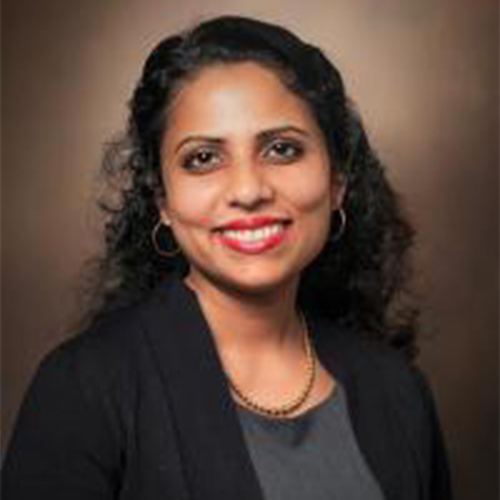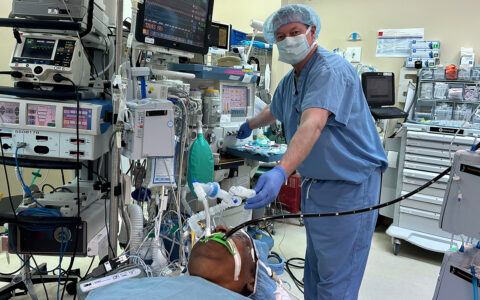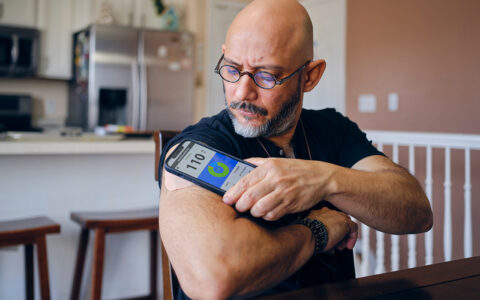Weight management practitioners face tough hurdles. In addition to the challenges of patient compliance and insurance coverage, there is a lack of strong research and data on what treatments work for different populations. These complicating factors have kept the field in a nascent stage that has lagged behind the country’s obesity epidemic, says Gitanjali Srivastava, M.D., medical director of the Vanderbilt Weight Loss Center.
One important step to advance the field is to train more high-level experts, Srivastava says. Vanderbilt University Medical Center recently joined 15 other centers in the U.S. to offer a fellowship program in obesity medicine, which Srivastava directs. The program will graduate its first fellow in July.
“The program immerses the fellow not only in lifestyle therapies, but also in use of obesity and off-label medications, the efficacies and complications of bariatric surgery, and the intricacies of barriers to obesity treatment and management,” Srivastava said. “Our goal is to join in raising the competency level of this burgeoning specialty.”
“Our goal is to join in raising the competency level of this burgeoning specialty.”
Training in the Full Spectrum of Treatments
Srivastava received her training at Harvard from 2011 to 2013, when it was one of only two U.S. medical centers to have an obesity fellowship program.
“There was no training on nutrition and obesity, whether it was in medical school or residency,” Srivastava said. “For those reasons, I think that our present medical community doesn’t know how to treat obesity effectively, and many still struggle to communicate with patients about obesity given the sensitivity and stigma.”
She says that is changing as interest in the field escalates. Obesity is multifactorial, so the fellowship approaches treatment from many angles: genetic, biologic, surgical, nutritional, physical and behavioral, which includes stress management and issues like emotional eating.
“Selecting among therapies is a skill developed only through comprehensive obesity management training,” Srivastava said. “The purpose of a fellowship program is to build that kind of expertise and then send the practitioner out into the world to train others.”
Capitalizing on More Medications
Srivastava says training in pharmacologic treatment is important as more practitioners think outside the strict “calories-in, calories-out” box. Medicines for obesity management work by directly or indirectly modifying energy metabolism pathways. Liraglutide, for example, works through modulation of a gut hormone. Setmelanotide, most recently approved for genetic obesity, works on the MC4 pathway of the brain.
Additionally, Srivastava has seen repurposed medicines like metformin help some patients lose up to 60 pounds or more. The anti-seizure medication topiramate at low dosages can also be effective when complemented by phentermine, a sympathomimetic agent, she said. She cites other examples, like norepinephrine and the dopamine reuptake inhibitor bupropion to help with food cravings and addiction.
“Once we recognize certain phenotypes and understand underlying metabolic abnormalities, we can tailor therapies to each patient.”
“Sometimes it takes a combination of two or three medications,” Srivastava said. “Once we recognize certain phenotypes and understand underlying metabolic abnormalities, we can tailor therapies to each patient.”
A New Crop of Advocates
Vanderbit’s obesity fellowship training uniquely integrates an important focus on pediatrics. “What is happening to our adult population is reflected in our pediatric population,” Srivastava said. “We are seeing 12- and 13-year-olds with BMIs in the 50s developing diabetes, prediabetes, and high blood pressure.”
Srivastava hopes the program and the rotation of medical students and residents through the Weight Loss Center will help build a stable of capable advocates for adult and pediatric populations.
“Obesity medicine touches upon every medical and surgical specialty,” she said. “For all physicians, patient care has to be metered or seen through the lens of obesity – you do everything a little differently. This is not typically taught in medical school, so spending time in our center can be an eye-opener to new physicians.”





